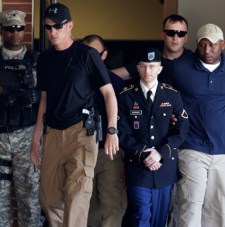Showing posts with label spies. Show all posts
Showing posts with label spies. Show all posts
Saturday, November 17, 2018
something about snoops
Some people like estate sales, wandering through a stranger's home, seeing pieces of another life. Some people like being in the office when everyone else is gone or reading a letter written to someone else. You feel distant, tempted to feel, almost involved, but still in control.
Labels:
aloof,
attachment,
distance,
estate sales,
feeling,
intimacy,
invasion,
letters,
office space,
personal space,
snooping,
spies,
spy,
spying
Friday, January 06, 2017
something about John C. Masterman's "The Double Cross System in the War of 1939 to 1945"
The Double Cross System in the War of 1939 to 1945 is a report on an anti-espionage program run by the British intelligence and security service MI5 during World War II; MI5 recruited and employed Nazi agents in Britain to disseminate disinformation back to the German Government. (Bits of legitimate intelligence were mixed in to lend the double agents credibility with the regime.) This nonfiction work relates methods, the anonymous people who used them, and various operations, successes, and failures.
The author of this report, John Cecil Masterman, was integral to the program. Masterman, an academic who was drafted into clandestine government service, reports that the program was mostly a success. Masterman's writing is also a success, albeit a modest one. Dry in its telling, the narrative does not require a lot of chewing; it's mercifully brief.
Wednesday, June 22, 2016
something about J.C. Masterman's "The Double Cross System in the War of 1939 to 1945"
The Double Cross System in the War of 1939 to 1945 is a report on an anti-espionage program run by the British intelligence and security service MI5 during World War II; MI5 recruited and employed Nazi agents in Britain to disseminate disinformation back to the German Government. (Bits of legitimate intelligence were mixed in to lend the double agents credibility with the regime.) This nonfiction work relates methods, the anonymous people who used them, and various operations, successes, and failures.
The author of this report, John Cecil Masterman, was integral to the program. Masterman, an academic who was drafted into clandestine government service, reports that the program was mostly a success. Masterman's writing is also a success, albeit a modest one. Dry in its telling, the narrative does not require a lot of chewing; it's mercifully brief.
Thursday, August 01, 2013
Pictures of him as a boy
 For leaking classified US government information to the website Wikileaks, on July 30, 2013, Army Private First Class Bradley Manning was convicted of 17 charges, including five
counts of espionage and theft. On the heels of this verdict, The New York Times published an article titled "Loner Sought a Refuge, and Ended Up in War". Here, Manning is described as a lifelong outcast. The article further reveals that it was not his crimes that he was being tried for, but his identity:
For leaking classified US government information to the website Wikileaks, on July 30, 2013, Army Private First Class Bradley Manning was convicted of 17 charges, including five
counts of espionage and theft. On the heels of this verdict, The New York Times published an article titled "Loner Sought a Refuge, and Ended Up in War". Here, Manning is described as a lifelong outcast. The article further reveals that it was not his crimes that he was being tried for, but his identity:As prosecutors accused Private Manning of being a self-promoting “anarchist” who was nothing like the tortured man of principle portrayed by his lawyers, supporters around the world celebrated him as a martyr for free speech. But the heated language on both sides tended to overshadow the human story at the center of the case.The article does the sense-making for us. In its narrative, Manning's online connections--first with Wikileaks founder, Julian Assange, then with computer hacker Adrian Lamo--that led to this conviction follow a pattern, and add the apparently unfortunate conclusion to his coherent life's story. However, contrary to what the article says, it is precisely the human story that has been at the center of the case and the center of media coverage from day one: international outlaw, Julian Assange; guilty martyr, Bradley Manning; narcissistic fugitive, Edward Snowden--these are the characters, and they are the story.
Subscribe to:
Posts (Atom)

